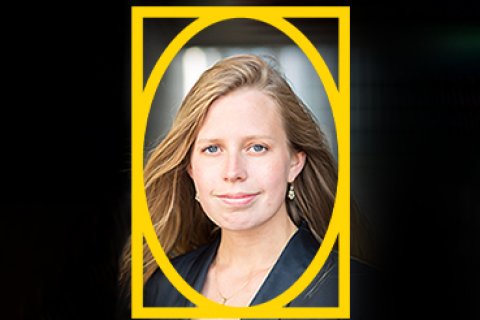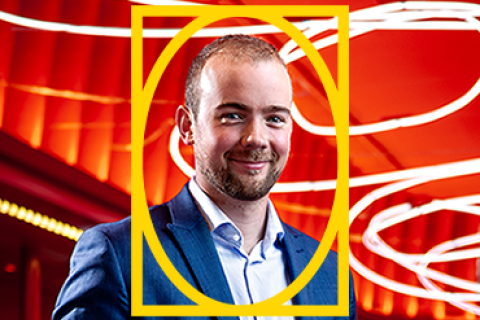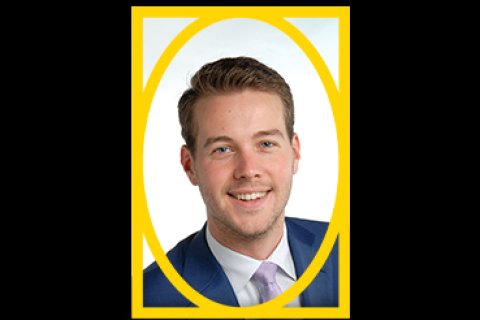Testimonials
The multitude of backgrounds enriches the learning process

Until 2019 I worked in Brussels, as Policy Officer at ETNO, the European Telecommunications Network Operators' Association. ETNO is the principal policy group for European electronic communications network operators such as Orange, KPN, Deutsche Telekom and Proximus. I was responsible for the management of members’ working groups, coordination of policy and advocacy on a wide range of digital topics such as connectivity for self-driving cars, online platforms and data protection.
This involves both strategic planning of policy advocacy as well as preparation of the policy papers, meetings and monitoring. I worked mostly with communication towards the European Parliament, the Council and the European Commission as well as the Permanent Representations of the Member States. However, part of my tasks also involved representing the companies in the European Commission’s stakeholder High Level Group for the automotive industry: GEAR 2030. This means assisting in drafting and amending common position papers with other industry stakeholders and representing our members’ views on topics such as connectivity and 5G networks. A dream-job for a tech-wonk like me!
I think the European Governance programme is excellent for someone who would like to have a job related to EU policy. My degree provided me with knowledge of the EU’s legislative process, the institutional setup and historical background – things that are good to know if you want to work in the ‘EU-bubble’. However, the combination with practical experience has been crucial for me. You learn to amass vast amounts of information in a short time as well as handle parallel projects.
European Governance takes you literally on a trip through the continent
At the same time European Governance takes you literally on a trip through the continent. My first year in Brno was wonderful, with courses in Central and Eastern European policy and history from teachers who had personal experience from the disruptive moments around 1989. Furthermore: Brno is a hidden pearl among European cities, within reach of many European capitals.
Utrecht University and my following internship at the Ministry of Interior and Kingdom Relations of the Netherlands (during the Dutch EU Presidency!) was an intense learning experience of both the theoretical and practical sides of European public policy making.
I also think that the composition of the class, with students coming from all over Europe, is something special about the programme. The multitude of academic backgrounds brings diversity and enriches the learning process.
— Kristina Olausson, MSc European Governance
Kristina Olausson was Policy Officer at ETNO, the European Telecommunications Network Operators' Association and currently Senior Public Policy Manager at Liberty Global. Kristina graduated in European Governance.
Interdisciplinary character provides added value

I worked as a Government Trainee for the Ministry of Economic Affairs and Climate Policy. The Government Trainee Programme is a two-year programme that contains various positions within the ministry, to obtain the necessary training for a versatile civil servant. I worked as project secretary for the department responsible for ‘phasing out’ gaswinning from the Dutch province of Groningen in various companies in the Netherlands. This measure was taken by the Ministry in response to the earthquakes, damaged property and the unrest among the people of Groningen due to the gaswinning. This involves engaging in dialogue with companies about the process and the concerns that they have. I am also involved in proposing changes in the law and informing the minister about this project.
Knowledge of Public Administration, Law and Economics is certainly useful for the issues the government faces. In this respect the interdisciplinary character of the Master's programme in European Governance definitely provides added value. In reducing companies’ use of gas from Groningen, I have to consider the cost for companies and the government alike, for instance. And we also have to look at what we can and cannot do within the existing laws. In addition, there is a strong political aspect of course. These perspectives often collide when making policy. My experience with the three disciplines in my degree programme allows me to step back now and then and see things from a different perspective.
The perfect stepping stone from university to working life
Alongside my regular work, I've been pursuing different kinds of training as part of my Government Trainee Programme. Part of this is subject-related, such as courses on government finance, policy and legal affairs and communications. The other part is more personal and deals with my skills, as well as my personal motives. To me, this programme is the perfect stepping stone from university to working life because it gave me the space to find out what I was looking for in my career.
European Governance is ideal for students who want to learn more about the European Union in an international context. To be able to go to different places in Europe in the first part of the programme and during the internship period is a great. A real opportunity to learn more about governance and about yourself. You can examine the various issues and perspectives within the European Union in greater depth. With an open mind, you’ll get a better picture of the huge range of possibilities out there. The international character and the internship opportunities of the Master's programme have therefore provided me with a valuable network in Europe.
— Bouke van Hilten, MSc European Governance
Bouke van Hilten was Government Trainee for the Ministry of Economic Affairs and Climate Policy and graduated in European Governance. Currently, Bouke works as a Policy officer Infrastructure and water management at Schiphol.
International academic experience and good preparation for the labour market

I worked as a Public Affairs advisor to the regional government of the Dutch province of Limburg. I supported the government in realising their goals on the full range of regional policy areas. My involvement was limited to policy goals that require the involvement of other levels of government, especially the EU institutions. For example establishing cross-border railway connections or stimulating the regional economy with public investments in the development of innovative campus ecosystems.
My regional government is seated in Maastricht, but also has offices in The Hague, Brussels and Düsseldorf. I conducted most of my job from the Brussels office, where I worked together with the representatives of other Dutch provinces and regional stakeholders (like Maastricht University) in the House of the Dutch Provinces. From Brussels (where I live as well since the start of my research internship), I could easily travel to The Hague (to assist my Public Affairs colleagues) and Maastricht (to consult policy experts or to advice the regional ministers).
Try to find an internship close to the decision-making process’
My main focus was the relationship between the region and the EU institutions in Brussels. I tried to maintain and expand the strategic political network of the region in Brussels. On an everyday basis, I worked in close cooperation with the Dutch Permanent Representation to the EU and the Dutch Members of European Parliament on for instance the reform of the European Common Agricultural Policy after 2020 and the availability of Erasmus funds for cross-border internships in vocational training. I spent most of my time monitoring national and European political processes with an outcome relevant to provinces. If necessary, I provided information about my region to be used in speeches and debates. From the Brussels office, I assisted the King's Commissioner of Limburg to the plenary sessions of the European Committee of the Regions and I organised working visits of European politicians to my region. Besides, I also worked on the relationship with the Belgian governments, international institutions as the Benelux Union, and the offices of other regional representations in Brussels. With the latter, we form alliances and networks to combine our joint lobby-efforts.
In Brussels, you will meet many very talented students that have a background in European governance-like programmes. The unique selling point of European Governance is the combination of international academic experience and a good preparation for the labour market. My research internship at the Dutch Permanent Representation to the EU in combination with thesis writing was demanding, but allowed me to build a network and profile that I am still using today. I would therefore advise all students to take this unique chance to do your internship in a political capital of one of the Member States or in Brussels. Try to find an internship close to the decision-making process. This practical, even political experience is an added value to your academic record so far.
— Raphael Lepot, MSc European Governance
Raphael Lepot was a Public Affairs advisor to the regional government of the Dutch province of Limburg. Currently, Raphael works as a Diplomat in training at Ministry of Foreign Affairs and graduated in European Governance.

